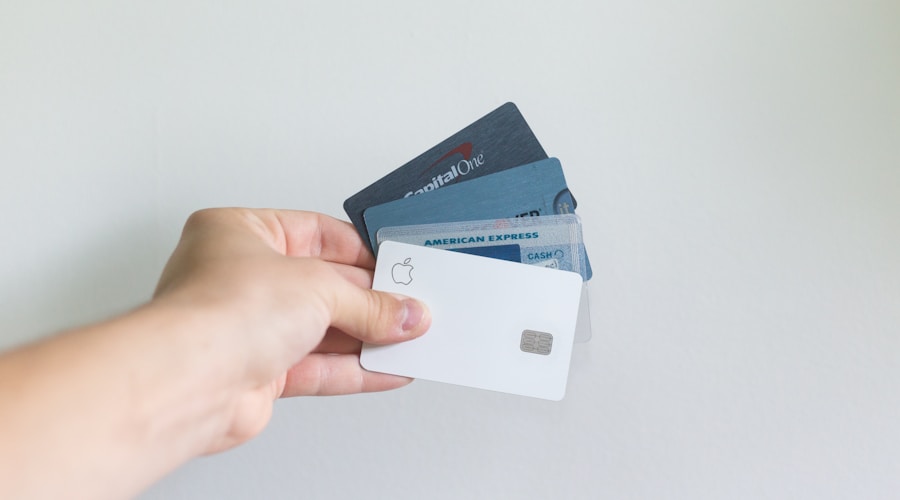Are you stuck in a cycle of debt and wondering why your financial situation isn't improving? Perhaps you're making common mistakes without even realizing it. But don't worry, you're not alone. Many people struggle with understanding and managing their money effectively. In this article, I'll debunk some common money misconceptions that might be keeping you in debt and offer practical solutions to help you take control of your finances.
Let's dive in and uncover the reasons behind your lingering debt, and most importantly, how you can break free from it. It's time to empower yourself with the knowledge and tools to build a secure financial future for yourself and your loved ones.
Introduction: Understanding Debt
Debt can be a daunting and frustrating aspect of our financial lives. It can weigh on your mind and limit your ability to achieve your long-term financial goals. But have you ever stopped to think about why you're still in debt? It's essential to understand the root causes of your debt in order to break free from its chains.
As financial expert Michelle Singletary puts it, "Debt is not just a financial issue. It's a behavioral issue."1 Understanding debt goes beyond just the numbers in your bank account. It involves delving into your habits, attitudes, and beliefs about money.
If you find yourself constantly asking, "Why am I still in debt?" it's time to dig deeper and uncover the reasons behind your financial struggles. This article will debunk common money misconceptions that may be keeping you in debt and offer practical solutions to help you break free.
Let's explore the common mistakes that many people make when it comes to managing their finances and discover how you can turn the tide in your favor.
Mistake 1: Only Making Minimum Payments
So, you've been diligently making those minimum payments on your credit card every month, thinking you're doing your part to chip away at your debt. But here's the truth: "Paying the minimum is a trap that keeps you in debt for years," says financial expert Dave Ramsey.
By only making minimum payments, you're essentially treading water. Sure, you may feel like you're staying afloat, but in reality, you're not making any real progress toward becoming debt-free.
If you find yourself in this situation, it's time to break free from the cycle. Take Ramsey's advice to heart: "You must pay more than the minimum to get out of debt." It's a simple concept, but one that so many people overlook.
By committing to paying more than the minimum each month, you'll start to see your balances decrease and your debt begin to shrink. It may require some sacrifices, but the long-term benefits outweigh the short-term discomfort.
Remember, making minimum payments might seem like a safe option, but it's keeping you trapped in the cycle of debt. It's time to break free and take control of your financial future.

Mistake 2: Not Creating a Budget Plan
It's all too easy to fall into the trap of not having a budget plan in place. Without a clear understanding of how much money is coming in and going out, it's impossible to make progress in paying off debt.
When you don't have a budget plan, it's like driving a car without a map. You might be moving, but you have no idea where you're going. You need to have a budget to guide your spending and ensure that you're not overspending in certain areas.
Just as the famous financial expert Dave Ramsey once said, "A budget is telling your money where to go instead of wondering where it went". By creating a budget plan, you're taking control of your finances and giving yourself the power to make informed decisions.
Remember:
Your budget plan should reflect your personal goals and priorities. It's not about restricting yourself, but rather about aligning your spending with what truly matters to you. As a real person, Sarah from Texas, puts it, "Having a budget has allowed me to save money for things that are important to me, like traveling and hobbies, without feeling guilty about spending".
Creating a budget plan may require some effort and discipline, but the benefits far outweigh the initial work. It's a crucial step in managing your finances and ultimately getting out of debt.
Mistake 3: Misusing Credit Cards
Are you using your credit cards irresponsibly? It's a common mistake that many people make when it comes to managing their debt. Using credit cards as a source of free money can lead to a cycle of debt that's difficult to break.
As financial expert Robert Kiyosaki puts it, "The single most powerful asset we all have is our mind. If it is trained well, it can create enormous wealth in what seems to be an instant." So, it's important to train your mind to use credit cards wisely.
When you misuse credit cards, you're essentially borrowing money that you may not be able to pay back. This can lead to high-interest payments that only add to your debt. You might find yourself in a constant cycle of paying off your credit card balance, only to rack up more debt again.
To avoid this mistake, it's crucial to only use your credit cards for purchases that you can afford to pay off in full at the end of the month. Financial author and motivational speaker, Suze Orman, advises, "The key to taking control of your personal finance is to be active, not passive." By actively monitoring your credit card spending and paying off your balance regularly, you can avoid falling into the trap of unsustainable debt.
So, the next time you reach for your credit card, ask yourself if this purchase is something you can truly afford. Being mindful of your credit card usage can help you avoid piling on unnecessary debt and start working towards a financially secure future.

Mistake 4: Ignoring Emergency Savings
When it comes to managing your finances, one of the biggest mistakes you can make is ignoring the importance of having emergency savings. It's easy to think that emergencies won't happen to you or that you can handle them when they do, but the truth is, life is unpredictable, and being prepared for the unexpected is crucial.
Not having an emergency fund can lead to further debt if something unexpected happens, such as a car repair or a medical expense. As financial expert Suze Orman puts it, "You need an emergency fund, and not just for the little things. Building an emergency fund is your first step in protecting yourself from life's unexpected surprises."
To avoid this mistake, you should prioritize building an emergency fund to cover at least three to six months' worth of living expenses. Start by setting a realistic goal and making regular contributions to your emergency savings fund. The key is consistency – even small contributions can add up over time and provide you with a safety net when you need it most.
Remember, having an emergency savings fund is not just about preparing for the worst – it's about giving yourself peace of mind and the ability to handle unexpected financial setbacks without going further into debt.
Don't ignore the importance of having an emergency savings fund – it could be the difference between staying afloat and falling deeper into debt.
Mistake 5: Wanting a Quick Fix
You might find yourself wishing for a quick and easy solution to get out of debt. It's understandable – being in debt is stressful and can feel overwhelming. But the truth is, there's no magic fix. As personal finance expert Dave Ramsey says, "If getting out of debt was easy, everyone would be debt-free."
It's important to remember that getting out of debt takes time and commitment. You have to be willing to make changes to your spending habits and stick to a plan. There's no shortcut or quick fix that will instantly solve your financial problems.
Unfortunately, wanting a quick fix can lead to making impulsive decisions, like taking out high-interest loans or falling for get-rich-quick schemes. These can often make your financial situation worse in the long run. As financial advisor Suze Orman puts it, "It's not about instant gratification. It's about long-term financial health."
So, instead of looking for a quick fix, focus on creating a sustainable plan to pay off your debt and improve your financial habits. It may take time, but it's the most effective way to achieve long-term financial stability. Take it from personal finance writer, Mary Hunt, who says, "There is no quick fix; no magic bullet; no secret formula. It’s about doing the right things, for the right reasons, and then being patient."
Remember, getting out of debt is a journey, not a sprint. Embrace the process, and be patient with yourself. With time and dedication, you can achieve financial freedom.

Conclusion: Changing Money Habits
Now that you understand the common money misconceptions that may have kept you in debt, it's time to take action and change your financial habits. Remember, the key to improving your financial situation is to make consistent changes over time. As personal finance expert Dave Ramsey puts it, "Personal finance is 80% behavior and only 20% head knowledge".
Here are a few steps you can take to start changing your money habits:
Track Your Spending: Take a close look at where your money is going each month. This will help you identify areas where you can make cuts and save more.
Set Realistic Goals: Whether it's paying off a credit card or building an emergency fund, setting realistic financial goals can motivate you to stick to your new habits.
Create a Budget Plan: As financial author T. Harv Eker says, "The number one reason most people don't get what they want is that they don't know what they want". Creating a budget plan will help you gain control over your money and work towards your financial goals.
Build Healthy Spending Habits: Challenge yourself to think twice before making impulse purchases. Start asking yourself if you truly need the item or if it's just a fleeting desire.
Seek Professional Help: If you're feeling overwhelmed by your debt or unsure of where to start, consider seeking help from a financial advisor or credit counselor. They can provide personalized guidance and support as you work towards financial freedom.
By making these changes and staying committed to them, you'll be well on your way to breaking free from the cycle of debt and building a more secure financial future for yourself. Remember, as financial journalist Jean Chatzky says, "It's not about your resources, it's about your resourcefulness".
Now, go forth and take control of your finances!
Conclusion
Changing your money habits and getting out of debt requires commitment and discipline. As Dave Ramsey, a well-known financial expert, once said, "You must gain control over your money or the lack of it will forever control you". It's essential to understand that getting out of debt is a journey, not a quick fix.
By avoiding the common mistakes we've discussed and making intentional changes to your financial habits, you can gradually see a positive shift in your financial situation. As you start making progress, it's important to celebrate each small victory. As financial educator Tiffany Aliche advises, "Celebrate the small wins. One day they'll add up to something great".
Creating a realistic budget, making more than minimum payments, using credit cards wisely, and prioritizing emergency savings are all steps in the right direction. Remember, the key is to be persistent and patient with yourself as you work towards financial freedom.
As you embark on this journey to financial wellness, seek support from others who have similar goals. As bestselling author Suze Orman suggests, "Surround yourself only with people who are going to take you higher". Having a strong support system can provide encouragement and accountability as you make changes in your financial life.
Stay focused on your goals and remind yourself that the changes you're making are not just about getting out of debt, but about creating a secure and prosperous future for yourself. By avoiding common misconceptions and developing healthy money habits, you can set yourself on a path to long-term financial success.

2Dave Ramsey, Financial Peace (1992)
3Dave Ramsey, Financial Peace (1992)
4Sarah Jones, Personal Finance Journey (2020)
5Robert Kiyosaki and Sharon Lechter, Rich Dad, Poor Dad (1997)
6Suze Orman, The 9 Steps to Financial Freedom (1997)
7Suze Orman, The Money Book for the Young, Fabulous & Broke (2005)
8Dave Ramsey, Financial Peace Revisited, (2013)
9Suze Orman, The Road to Wealth, (2001)
10Mary Hunt, Debt-Proof Living, (2014)
11Dave Ramsey, Financial Peace (1992)
12T. Harv Eker, Secrets of the Millionaire Mind (2005)
13Jean Chatzky, Make Money, Not Excuses (2006)
14Dave Ramsey, Financial Peace (1992)
15Tiffany Aliche, The One Week Budget (2013)
16Suze Orman, The Courage to Be Rich (1999)